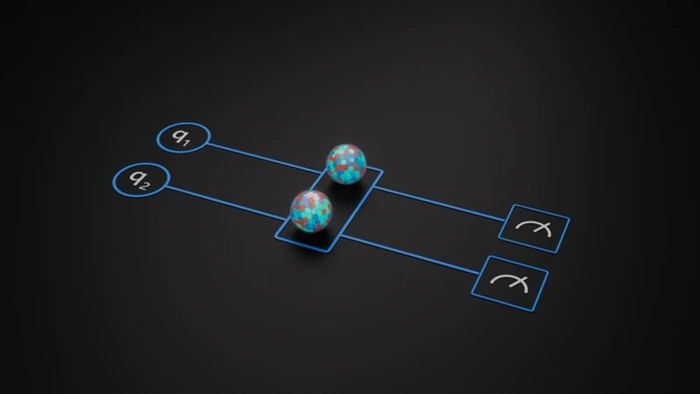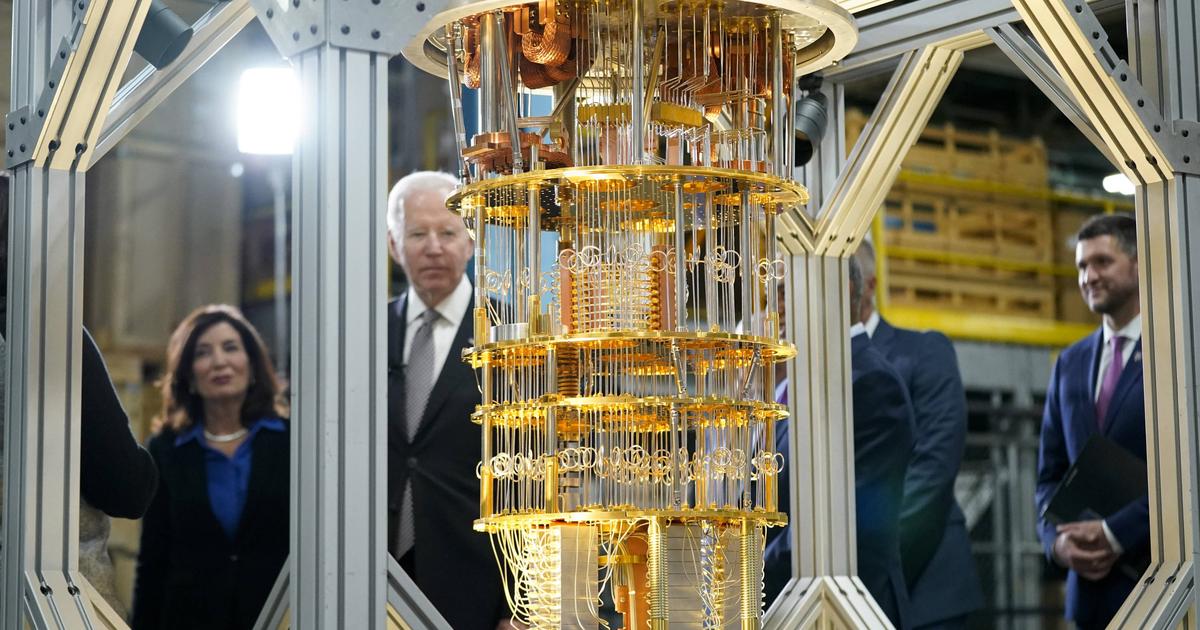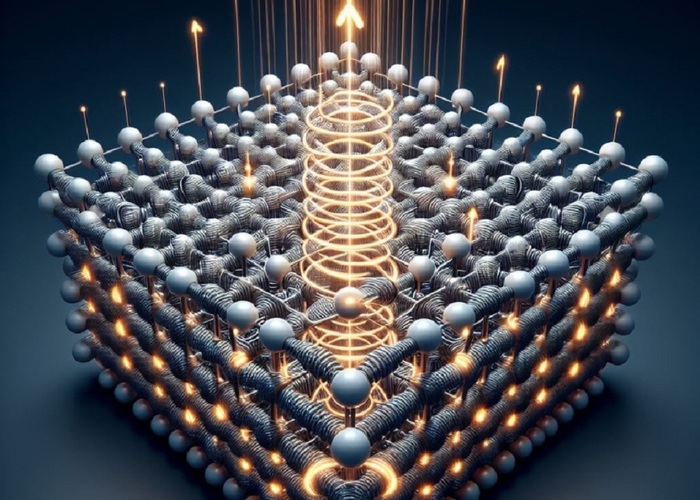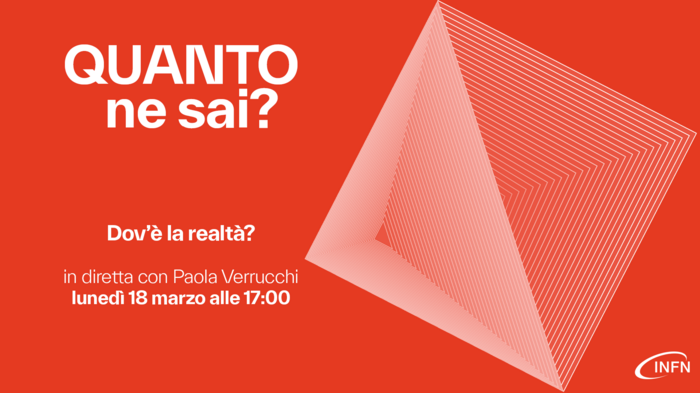Sergio Boixo, from León who will celebrate half a century this year, was a philosopher before he was a mathematician, physicist and engineer.
And that trajectory helped him be flexible in the way he thought about the world.
Quantum Artificial Intelligence (AI) has been a part of it for a decade, the Google research group that opened this February one of the most anticipated doors of quantum computing: “The demonstration that it is possible to reduce errors as it increases the size of the system and register failure rates low enough to execute useful quantum algorithms”.
This finding allows him to predict that we are "very close" to a computer without errors that takes advantage of the potential of the subatomic universe and with it, a new era of discoveries.
Ask.
In love there is a superposition of states, decoherence... Would it serve to explain quantum mechanics?
Answer.
I would not describe love in terms of chemistry and physics.
I don't know if that has much to do with love.
I wouldn't reduce it to physics and chemistry.
If you do, it ceases to be love.
Q.
Could you explain in an understandable way what quantum computing is?
A.
Everyone knows, more or less, what computing is or has a fairly direct experience because we all have computers and mobile phones.
It has been one of the technological revolutions of the last century.
Quantum mechanics is a discipline even older than computer science because it starts at the beginning of the 20th century.
It's the modern scientific discipline that explains why physics and chemistry don't work the way we thought, and it underlies many of the technologies we use, like the chips that make computing possible or flat panel displays.
Quantum computing is doing computation with the rules of quantum mechanics, which are different.
More information
Google achieves an error correction system necessary for useful and large-scale quantum computing
Q.
But we still can't talk about a quantum computer?
R.
_
We are so close.
The announcement we made in February is related to that.
The reason we don't have what I would call a quantum computer, which programs and runs flawlessly, is because we have to fix it.
And it is what we have announced: the correction of errors is possible.
We still have to lower the rate further, but by the end of this decade, if we're optimistic, we're going to have it.
It is our roadmap.
Q.
And what advantages will it bring?
A.
It is difficult to know what the applications of a quantum computer are going to be without a quantum computer.
For more than a century we have been working on trying to solve problems of quantum mechanics, that is, of chemistry and physics, which are the basis of the industry: better batteries, for example, or superconductors to transport electricity without loss of energy or the efficient development of fertilizers or drugs and vaccines or advances in the area of classical or topological data or finance.
There are many problems that cannot be solved with a classic computer and this is going to be one of the great applications.
There are many problems that cannot be solved with a classic computer and this is going to be one of the great applications
Q.
What are the limitations to get the quantum computer?
A.
The two main limitations are
hardware
[material elements] and
software
[programming].
The announcement that we have made has been possible because we have worked on the
software
, on the error correction protocols, on better decoders and controls, but much of the progress is due to the fact that we have improved the
hardware
in recent years to be able to show that bug fixing scales.
It is no longer a competition between a calculation with a quantum processor and a classic supercomputer, as in 2019. The hardware we had at that time had too many physical errors to make the demonstration that we have done.
It has improved substantially in recent years and needs to continue to improve for the next milestones on our roadmap and, above all, reduce the physical errors of our qubits.
Q.
When will the error rate be low enough?
R.
In our roadmap, we believe that in two or three years.
The proof we have now made is a prototype error-free logic qubit, just as classical computers have error-free logic bits.
To achieve this we need to do bug fixes and make it work.
A logical qubit groups many physical qubits to have redundancy, redundant information that allows you to do error correction.
If one physical qubit fails and others don't, you have to be able to put more physical qubits, but they have errors.
We have to get to a low enough error rate so that by putting more physical qubits, the misses don't increase, they decrease.
This is what has started to happen now: we have been able to put more physical qubits and have fewer errors.
It is the progress that we believe is necessary and we publish it to share it,
because there is still a lot of technology that is needed to be able to develop a quantum computer that we don't have yet and we are not going to develop all this technology either.
We depend on a chain that has to achieve it and we hope that this will also happen in two or three years.
Post-quantum cryptography is a problem like it was in the year 2000, when computers had to be upgraded.
Nothing happened and I don't think anything happened
Q.
Just like a quantum computer opens up infinite positive possibilities, does it threaten internet security?
R.
There is a lot of effort and a lot of theoretical development to find solutions.
It is what is called post-quantum cryptography.
Work has been going on in this project in the last decade with more intensity.
It's a problem like the one in the year 2000, when computers had to be updated for the turn of the millennium.
It will not be necessary to change all the classic
software
, but only the encryption algorithms.
And we know how to update it, even though it's still a major project that a lot of people are working on.
Nothing happened in the year 2000 and I don't think anything will happen now.
Q.
Does Latin America have a say in quantum computing?
Will there be a Sycamore, Google's quantum processor, in Spain, Mexico or Brazil, for example?
R.
Latin America has pioneers in the field of quantum computing and that continues to be the case.
There are important research centers in all countries, more and more.
Not everyone has to do qubits.
If so, we will not have a quantum computer.
We depend on specialized companies also making another of the components and that is what we are seeing beginning to happen.
At first they will be specialized experimental coprocessors for some calculations.
Computing is done through the cloud and this symbiotic relationship is established where there are interesting specialized centers that provide computing capacity used by many other companies.
We believe that this is how quantum computing will develop: the first specialized processors will be in computing centers accessible to everyone.
In fact,
part of what we [Google] do is try to help train the specialized workforce that will be needed more to work with these processors.
In terms of applications, our work is
open source
[open source].
We have developed a simulator so that anyone can go to our website, click on a link and start programming.
All of this, right now, is open source and free to encourage applications to be developed in all countries.
Q.
How has the philosophy for quantum computing helped you?
A.
I started studying philosophy before learning quantum mechanics and it helped me to forget the preconceived idea we have of what the world is like.
In philosophy you learn to put aside your ideas, to be more flexible, that there is no evidence of an object separate from the subject, that there is no object without an observer.
In quantum physics, this idea that perhaps the wave function collapses, for example, is no longer so strange to you because we are talking about phenomena and there is always an observer involved in them.
Qubits cannot be totally isolated and to observe them is to introduce errors.
In error correction we use superconductors that can be controlled and observable, although they have many errors.
But we don't use neutrinos, which are very coherent, but we can't control or measure them.
You can write to us at
rlimon@elpais.es
, follow
EL PAÍS Tecnología
on
and
or sign up here to receive our
weekly newsletter
Subscribe to continue reading
Read without limits
Keep reading
I'm already a subscriber

/cloudfront-eu-central-1.images.arcpublishing.com/prisa/VBMO5ST65VG25NTD6XY6QSTAAU.jpg)
/cloudfront-eu-central-1.images.arcpublishing.com/prisa/7BBFZMHM2JDPJH25TGODT4ZBT4.jpg)






